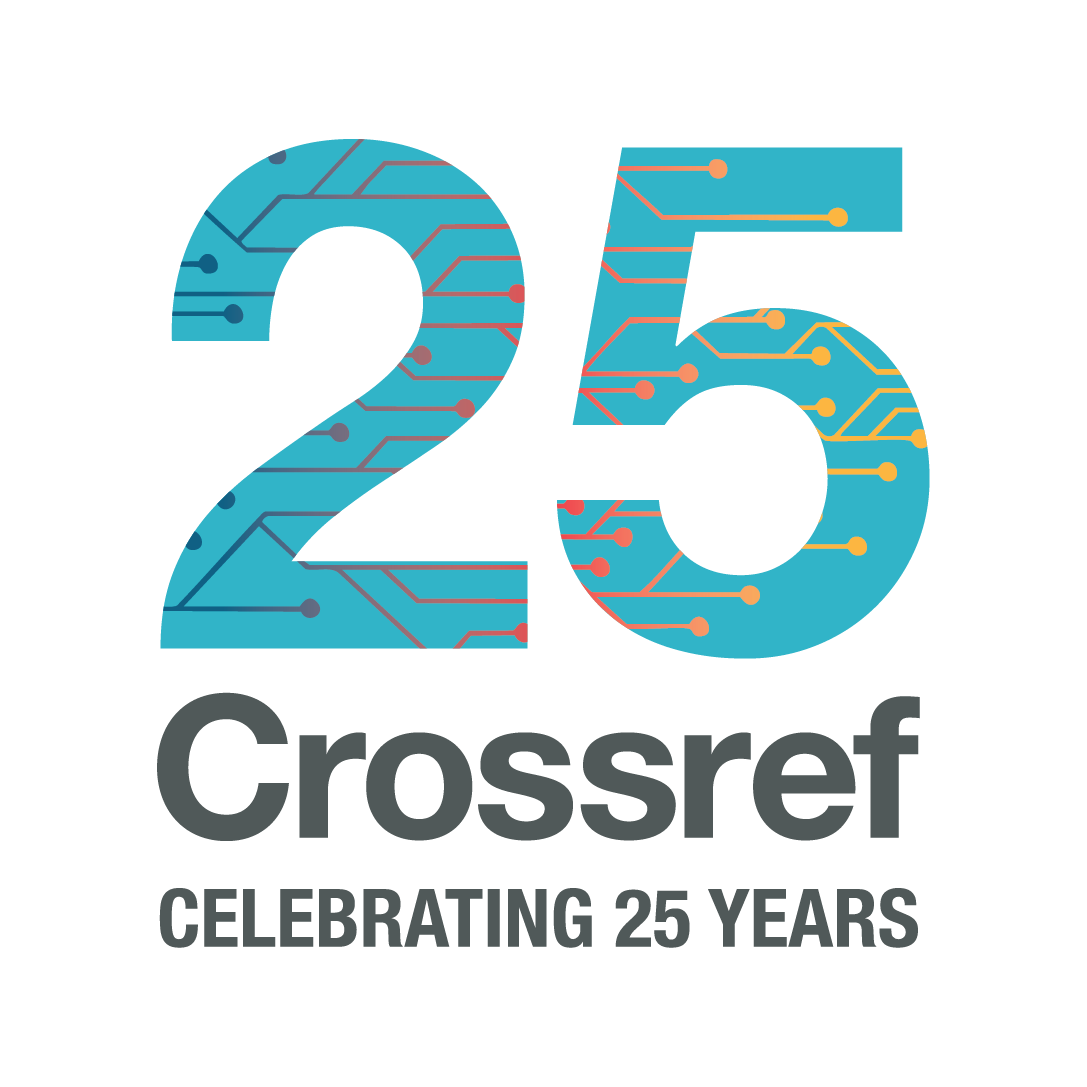8 minute read.Metadata excellence among new members: La Salle University, Perú
Click here for the version in English
En 2025, lanzamos los Premios Crossref a los Metadatos, con el objetivo de destacar el rol de nuestra comunidad en la gestión y el enriquecimiento del registro académico. En esta publicación, destacamos a la Universidad La Salle, Perú, ganadora del premio a la excelencia entre los nuevos miembros, y contamos con la participación de Yasiel Pérez, Responsable Técnico y Editor de la Revista, quien comparte sus ideas:
La Universidad La Salle se convirtió en miembro de Crossref hace relativamente poco tiempo, en 2023. Gestionamos nuestras revistas usando Open Journal Systems (OJS), y una vez que nos unimos a esta comunidad, los diferentes Consejos Editoriales compartimos la motivación de lograr una mayor visibilidad global, y vimos una oportunidad de mejora al proporcionar más metadatos y más completos.
El lado técnico de subsanar las deficiencias
Nuestras revistas, que llevan activas entre dos y cuatro años, han comenzado a enriquecer sus metadatos faltantes a niveles aceptables (¡creemos que aún podemos mejorar a niveles excelentes!). Gracias a mi formación como ingeniero de software, adaptamos el plugin de OJS para que admita campos de metadatos adicionales que no están disponibles en las versiones anteriores. El plugin requiere actualizaciones, por lo que realizamos modificaciones personalizadas para que sea compatible con los esquemas Crossref más recientes. Debido a limitaciones de tiempo, recursos humanos y financieros, consideramos más eficiente adaptar el plugin en lugar de adaptar nuestras instalaciones de OJS a las últimas versiones. Con estas modificaciones, depositamos los ROR ID, las licencias, las páginas de políticas y las actualizaciones de las revistas en Crossmark.
Por otro lado, hemos probado la versión con Soporte a Largo Plazo actual y la versión 3.5 de OJS, y recomiendo encarecidamente a cualquier usuario que actualice a cualquiera de estas versiones más recientes. Incluyen importantes parches de seguridad y, además, los plugins de Crossref son compatibles con los esquemas más recientes. Desafortunadamente, para nosotros, actualizar los sistemas desde una versión anterior a la 3.3 requiere tiempo adicional y soporte técnico, dada la importancia de los cambios de la v3.2 a la v3.3.
Tenemos un compromiso institucional con la provisión de metadatos enriquecidos. Contamos con políticas que exigen metadatos lo más completos posible como parte de nuestros flujos de trabajo, y lo convertimos en un requisito estricto. Naturalmente, existen algunos desafíos. Los metadatos abiertos y transparentes aún están relativamente poco valorados. A veces, los editores no comprenden completamente las implicaciones de proporcionar metadatos enriquecidos; mostrar su nombre en el sitio web no es lo mismo que tenerlo en los metadatos, por lo que la conexión entre la versión de registro y su visibilidad no siempre es evidente para autores y editores. Los apoyamos proporcionando directrices y capacitación a los consejos editoriales y equipos de las revistas. Por ejemplo, si una afiliación no está disponible en ROR, animamos a los autores a solicitar su inclusión en el registro.
Por otro lado, esto también nos motiva. Nos estamos preparando para empezar a incluir metadatos de subvenciones y financiación en nuestros flujos de trabajo. También apuntamos a utilizar estos datos para estudiar el impacto de nuestras políticas editoriales en la visibilidad, el uso, las citas, la indexación y otras métricas institucionales. La Universidad La Salle es una organización interesante porque formamos una red de universidades de todo el mundo, lo que provoca errores en la identificación adecuada.
Creemos que ciertamente otras organizaciones pueden lograr altos niveles de enriquecimiento de metadatos. Esto tiene dos aspectos fundamentales: uno técnico y otro organizativo. Desde nuestra perspectiva, el primer paso es obtener el apoyo de la organización y establecer políticas a nivel de toda la organización. Las soluciones técnicas pueden seguir después y no son fundamentalmente difíciles en comparación con conseguir que la comunidad proporcione metadatos buenos y completos.
Una vez que se consigue la asignación de recursos, se planifica la hoja de ruta para recopilar más metadatos. Es mejor tenerlos y no usarlos que necesitarlos y no tenerlos. Por ejemplo, ya estamos recopilando los roles de autor utilizando la taxonomía CRediT, por lo que una vez que sea totalmente compatible con el esquema de Crossref, queremos estar preparados para enviarlos. Idealmente, nos gustaría ver compatibilidad con identificadores alternativos y más tipos de fechas. Recopilamos las fechas de envío y aceptación a través de Crossmark y asignamos simultáneamente DOI, PURL y ARK. Con el tiempo suficiente, también planeamos implementar la revisión por pares abierta en nuestras revistas.
Lo que el reconocimiento nos ayudó a lograr
Recibir este premio ha tenido un profundo impacto en nuestra organización; nos ayuda a reforzar el mensaje que intentamos transmitir a nuestra comunidad. Abrió los ojos de las autoridades y los gestores de presupuesto, y también está aumentando la visibilidad de la organización en la región. Queremos ser vistos como un ejemplo en la comunidad local y regional: «Si una institución provincial puede hacerlo, otras también». Hemos comenzado a recibir llamadas solicitando capacitación para otras organizaciones. Por lo tanto, este premio ha sido sin duda fundamental para nosotros.
Version in English
In 2025, we launched the Crossref Metadata Awards, aiming to highlight our community’s role in stewarding and enriching the scholarly record. In this post, we put the spotlight on La Salle University, Perú, winner of the award for excellence among new members, and have Yasiel Pérez, Technical Head and Journal Editor, sharing his insights:
La Salle University became a Crossref member relatively recently, in 2023. We manage our journals using Open Journal Systems (OJS), and once we became part of this community, the different Editorial Boards had as a common motivation achieving more global visibility, and we saw an opportunity for improvement by providing more and richer metadata.
Technical side of filling the gaps
Our journals that have been active for two to four years started enriching their missing metadata to acceptable levels (we still think we can improve to excellent levels!). Because of my background as a software engineer, we adapted the OJS plugin to support additional metadata fields not yet available in the older versions. The plugin requires updates, so we made custom modifications to support the latest Crossref schemas. Because of time, human, and financial constraints, we found it most efficient to adapt the plugin rather than to adapt our OJS installations to the latest versions. With these modifications, we deposit ROR IDs, licences, and the journals’ policy pages and updates to Crossmark.
On the other hand, we have tested the current Long-term support and the 3.5 versions of OJS and I fully recommend to any user to upgrade to any of these more recent versions, there are important security patches and also the Crossref plugins are compatible with the latest schemas. Unfortunately, for us, upgrading the systems from a version older than 3.3 requires additional time and technical support, given the importance of changes from v3.2 to v3.3.
We have an institutional commitment to the provision of rich metadata. We have policies in place to require metadata as complete as possible as part of our workflows and we make this a strict requirement. Naturally, there are some challenges. Open and transparent metadata is still relatively underappreciated. Sometimes editors don’t fully understand the implications of providing rich metadata; displaying your name in the website is not the same as having it on the metadata so the connection between the version of record and its visibility is not always evident for authors and editors. We support them by providing guidelines and training to the editorial boards and journal teams. E.g. if an affiliation is not available in ROR we encourage authors to request their inclusion in the registry.
On the other hand, this is also a motivational push for us. We are preparing to start including grant and funding metadata in our workflows. We also aim to use this data to study the impact of our editorial policies on the visibility, use, citations, indexation, and other institutional metrics. La Salle University is an interesting organization because we are a network of universities across the world, leading to mistakes in proper identification.
We certainly think that other organizations can achieve high levels of metadata enrichment. There are two fundamental aspects to it: A technical aspect and an organizational aspect. From our point of view, the first step is gaining organizational support, establishing organization-wide policies. The technical solutions can follow and are not fundamentally difficult compared with having the community provide good and complete metadata.
Once you manage to secure the assignment of resources, then you plan the roadmap for collecting more metadata. It’s better to have it and not use it than to need it and not have it. For example, we already collect author roles using the CRediT taxonomy, so once it is fully supported by Crossref’s schema, we want to be prepared to submit them. Ideally, we would like to see support for alternative identifiers and more types of dates. We collect submission and acceptance dates via Crossmark and we simultaneously assign DOI, PURL, and ARK. Given enough time, we are also planning to implement open peer review in our journals.
What the recognition helped us achieve
Receiving this award has been profoundly impactful for our organization; it helps us reinforce the message that we are trying to deliver to our community. It opened the eyes of the authorities and budget managers, and it is also increasing the organization’s visibility in the region. We want to be seen as an example in the local and regional community—“if a provincial institution can do it, others can too.” We have started receiving calls requesting training for other organizations. So, this award has certainly become pivotal for us.






